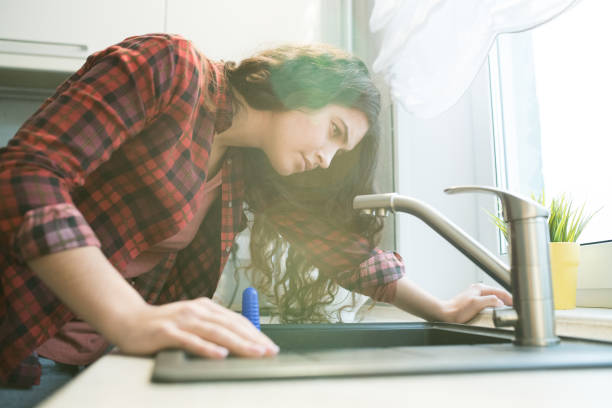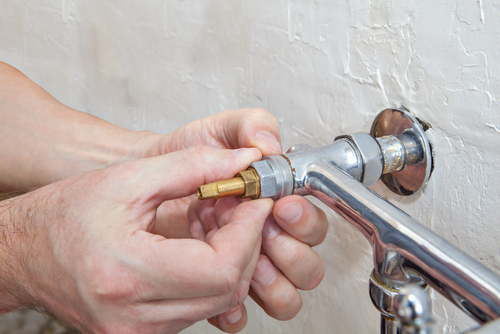Learning the Significance of Fixing a Faulty Faucet
Learning the Significance of Fixing a Faulty Faucet
Blog Article
Do you find yourself in search of resources around Why Is It Important To Fix Your Leaking Tap/Faucet??

Leaking faucets might appear like a small aggravation, yet their impact surpasses just the nuisance of the audio. From drainage to incurring unnecessary monetary expenses and health and wellness dangers, neglecting a trickling faucet can lead to different effects. In this article, we'll delve into why it's important to resolve this common house problem without delay and effectively.
Wastage of Water
Environmental Effect
Leaking taps add significantly to water wastage. According to the Environmental Protection Agency (EPA), a single tap leaking at one drip per secondly can lose greater than 3,000 gallons of water annually. This not only pressures water sources however likewise affects communities and wildlife based on them.
Financial Costs
Increased Water Bills
Beyond the ecological influence, leaking faucets can inflate water costs significantly. The collected wastage with time translates right into higher energy expenditures, which can have been prevented with timely repairs.
Possible Property Damage
Furthermore, long term leaking can result in harm to fixtures and surface areas bordering the faucet. Water accumulation can cause discoloration, deterioration, and even structural concerns if left ignored, causing additional repair service expenses.
Wellness Worries
Mold and Mold Growth
The consistent existence of moisture from a trickling tap creates a perfect setting for mold and mold development. These fungis not just compromise indoor air top quality but additionally posture health threats, particularly for people with breathing conditions or allergies.
Waterborne Illness
Stagnant water in leaking faucets can come to be a breeding ground for bacteria and other microorganisms, enhancing the risk of waterborne diseases. Pollutants such as Legionella bacteria prosper in stationary water, possibly bring about significant ailments when ingested or breathed in.
Do it yourself vs. Expert Repair service
Pros and Cons of Do It Yourself Repair Service
While some may attempt to take care of a dripping tap themselves, do it yourself repair services include their own collection of obstacles. Without appropriate understanding and devices, DIY attempts can worsen the concern or bring about insufficient repair work, prolonging the trouble.
Benefits of Working With an Expert Plumber
Hiring a professional plumber makes certain that the underlying reason for the trickling faucet is attended to efficiently. Plumbers have the know-how and equipment to diagnose and repair faucet problems effectively, conserving time and reducing the risk of more damages.
Step-by-Step Guide to Fixing a Dripping Tap
Tools Required
Prior to trying to take care of a trickling faucet, collect the necessary tools, including a flexible wrench, screwdrivers, substitute parts (such as washers or cartridges), and plumber's tape.
Usual Tap Issues and Their Solutions
Determine the sort of faucet and the details problem causing the drip. Common problems include damaged washers, rusty valve seats, or defective O-rings. Refer to maker instructions or on-line tutorials for step-by-step advice on fixings.
Preventive Measures
Routine Maintenance Tips
To stop leaking taps, execute routine upkeep such as cleansing aerators, evaluating for leakages, and changing worn-out components without delay. In addition, take into consideration setting up water-saving gadgets or upgrading to a lot more reliable fixtures.
Significance of Prompt Repairs
Resolving trickling taps as soon as they're seen avoids more water wastage and possible damages, inevitably conserving both water and cash over time.
Effect On Residential Property Worth
Assumption of Well-Maintained Home
Preserving a residential property in good condition, including addressing upkeep problems like leaking taps, boosts its viewed value and desirability amongst prospective buyers or tenants.
Influence on Resale Worth
Characteristics with well-kept plumbing fixtures, including faucets, command greater resale values in the property market. Dealing with leaking faucets can contribute to a positive impact throughout building inspections and settlements.
Environmental Responsibility
Individual Payment to Conservation
Taking obligation for fixing trickling taps aligns with more comprehensive initiatives towards water conservation and environmental sustainability. Every individual's actions collectively make a considerable effect on protecting valuable resources.
Sustainable Living Practices
By prioritizing prompt repair work and embracing water-saving habits, people contribute to sustainable living practices that benefit both present and future generations.
Conclusion
Dealing with a leaking faucet exceeds plain ease; it's a vital action toward conserving water, decreasing financial costs, and safeguarding health and home. Whether with DIY repairs or professional assistance, taking action to fix dripping taps is a tiny yet impactful method to promote liable stewardship of sources and contribute to a much healthier, a lot more sustainable future.
Why Are My Faucets Dripping (And Can I Fix it Myself)?
Causes of a Dripping or Leaking Faucet
Whether you’re hearing drops of water falling and hitting a sink, or noticing water ooze out from the base of the spout, you shouldn’t ignore a dripping or leaking faucet. And, the good news is, sometimes you can fix the problem yourself.
In this article, we’ll review a few common causes of dripping and leaky. We’ll also walk you through some basic ways to find the problem and handle it without calling anyone — and let you know when to call in a pro.
But, no matter what the cause, or whether you can handle it on your own, the sooner you address it, the better.
Each drip may be a tiny amount of water. But, they all add up quickly. According to the U.S. Geological Survey, one faucet losing one drop every 20 seconds — five a minute — wastes around a liter of water every day, and 173 gallons a year.
Add in more than one in your house, and it’s a lot of water to waste. So, we’ll help you get to the bottom of things quickly.
Four Reasons Your Faucet May Be Dripping
Aerator is Damaged or Unseated Valve Seat is Corroded O Ring is Loose or Worn Out Part of the Assembly is Loose Aerator is Damaged or Unseated
If you unscrew the end of your faucet, you’ll find the aerator. It’s the little stem piece with a screen on it that shuts off the water circulation.
If it’s damaged, or if it’s not sitting right, it will allow water to pass through.
Valve Seat is Corroded
Next is the valve seat, which is connected to the washer. If the washer wasn’t in place correctly, then it could have ground against the seat. Over time, this damages the valve seat.
The problem could also be corrosion: Over time, the part has worn out, and it’s now allowing water to pass through.
O Ring is Loose or Worn Out
Since the o ring is only a small rubber gasket, it’s a common reason why the faucet is dripping. You’ll find it at the base of the faucet, and it’s there to keep water from coming out where it’s not supposed to.
However, it’s common for the o ring to wear out over time. When it does, you’ll notice a drip.
Part of the Assembly is Loose
So far, we’ve looked at a few small, specific parts. But, the problem could be anywhere in the assembly if something’s out of place.
Even if a part isn’t damaged, over time, it may have become loose or dislodged. It could be the parts we mentioned, or the aerator at the tip of the faucet, the stem itself,
Can I Fix a Leaky Faucet Myself?
Depending on the problem, and how handy you are, there’s a chance you can fix a leaky faucet without calling a professional. But, you do run the risk of making the problem worse.
If it’s a small drip, you can certainly try a few troubleshooting tactics. We’ll walk you through them in a moment.
But, no matter what, your first step should be shutting off the water coming into the faucet. You should find a shutoff valve under the sink on the pipes leading to it. Turn each one clockwise until they close tightly.
Next, make sure you have the right tools for whatever you’re attempting. It’s tempting to make do with what you have. But, you need the right ones for a reason: You’re often dealing with small parts that can break if you handle them carelessly.
If you’re feeling confident, here are some places to start.
Items Near the Tip of the Faucet
A few of the parts we mentioned — particularly the valve seat and washer — are located at the tip of the faucet where the water comes out. They’re easy to access, making it a good place to start.
Check the O Ring
To check the o ring, you’ll need to take off the spout at the base. It’s easiest on kitchen sinks with long spouts, versus the smaller, bulkier base on most bathroom sinks.
Either way, this can be tricky, so do it carefully and don’t force anything. If it’s not coming right off, you’re much better off calling in a pro than possibly breaking something.
For a kitchen sink, there’s usually a nut or coupling assembly at the base of the spout. These often slide off easily without using any tools.
Once you’ve disassembled those parts, gently but forcefully twist off the spout.
Then, you can see the o rings. There should be two of the rubber gaskets on the base. If they look worn or damaged, replace them, and see if that solves the problem.

Do you enjoy reading about ? Create a comment below. We will be happy to find out your thinking about this content. In hopes that you come back again in the future. Sharing is nice. Helping others is fun. Thanks a lot for going through it.
Report this page